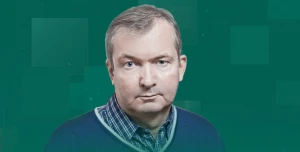
Putin sets up Viktor Orban and Narendra Modi
With his attack on Kyiv's Okhmatdyt children's hospital, Russian leader Vladimir Putin has put the prime ministers of Hungary and India, Viktor Orban and Narendra Modi, in a difficult position
The head of Ukraine's diplomatic service, Dmytro Kuleba, said that Putin had set up Orban, who had visited the Russian capital just before the attack and had been urging a ceasefire and peace talks between Russia and Ukraine. Kuleba emphasized that after this attack, it becomes quite difficult to argue that Putin wants any peace talks and to stress the need for further peacekeeping efforts.
However, we know that Viktor Orban himself is trying to navigate this situation, as he believes his efforts are needed, particularly because he predicted that in the coming months, the war between Russia and Ukraine will become much more violent than in recent years, necessitating new efforts to cease fire and help the countries at war to sit down at the negotiating table.
Amid Russia's brutal attack on Ukraine, Kuleba's words ring true. The Hungarian prime minister’s stance seems unconvincing. Moreover, as the head of the country presiding over the European Union, Orban’s visit to the Russian capital and his handshake with war criminal Vladimir Putin hardly enhances Hungary's prestige and opportunities in the EU.
But Putin did not limit himself to setting up Viktor Orban alone. Indian Prime Minister Narendra Modi, the leader of a country much more powerful than Hungary in terms of economic and political capabilities, had to meet with Putin on the very day Moscow attacked Kyiv and other Ukrainian cities, destroying a children's hospital with a direct hit. Amid this missile strike, the embrace between Modi and Putin looks questionable, as Ukrainian President Volodymyr Zelenskyy has said. Modi is aware of this and is handling the situation differently than Orban.
Speaking to Indian journalists, the head of the Indian government emphasized his opposition to wars in which innocent children die. While Modi did not specify which war he was referring to during his stay in the Russian capital, it was clear to everyone. Moreover, Modi is known to have been the first politician to tell Putin during the Shanghai Cooperation Organization summit in Samarkand, Uzbekistan, that the 21st century is not a time for wars and that complex problems need to be solved at the negotiating table.
Modi repeated this sentiment during his visit to the Russian capital. He did so publicly, understanding the damage to his image caused by Putin's actions—the villainous attack on Ukraine, the attempt to destroy the Ukrainian children's hospital, and the killing of innocent people.
In this situation, we must take a closer look at Vladimir Putin himself. On the one hand, he leads a country in real international isolation. No matter what Putin says about overcoming this isolation, visits by foreign politicians to Russia have been rare since he started the war against Ukraine.
It’s not just Western politicians who avoid Russia. Politicians from the Global South, despite maintaining profitable economic relations with Russia, try not to visit often to avoid straining relations with the United States and the European Union.
Thus, only countries with no serious relations with the civilized world come to Russia without any issues. These are often countries whose leaders are themselves under sanctions from the United States, the European Union, and the United Kingdom. However, there are not many such countries. Leaders of former Soviet republics visit Moscow, but the frequency and enthusiasm of these visits have waned.
Currently, individuals like Viktor Orban and Narendra Modi visit Moscow for their political reasons. Orban seeks to demonstrate his political weight, primarily to Xi Jinping, the President of the People's Republic of China, by working to communicate the details of the Chinese "peace plan" to the world. This is evident from the fact that the first question he asked Putin was about this Chinese "peace plan.”
Orban is willing to travel to Kyiv, Moscow, and Beijing to showcase his importance as a politician and his necessity to Xi Jinping. However, almost immediately after Orban's arrival in Moscow, Putin fires missiles at a Kyiv children's hospital, undermining all the Hungarian prime minister's peacekeeping efforts and the Chinese "peace plan.”
Modi's visit also had its reasons. He is seriously concerned about the Sino-Russian strategic partnership, as China remains a key geopolitical competitor for India. The Indian Prime Minister needs the Russian President to maintain good relations with his country, despite his clear disapproval of Putin's aggressive policies.
This visit could have rivaled US President Joseph Biden's recent hosting of Modi in the United States in terms of hospitality. The American media even highlighted the banquet menu as a significant event in US-Indian relations. Instead, Putin marred the reception in honor of Modi with the murder of Ukrainian citizens. This act epitomizes Putin's attitude towards the outside world. He is less concerned with isolation and more focused on demonstrating his power, strength, and brutality.
About the author. Vitaliy Portnikov, journalist, winner of the Shevchenko National Prize of Ukraine.
The editors don't always share the opinions expressed by the blog authors.
- News













































